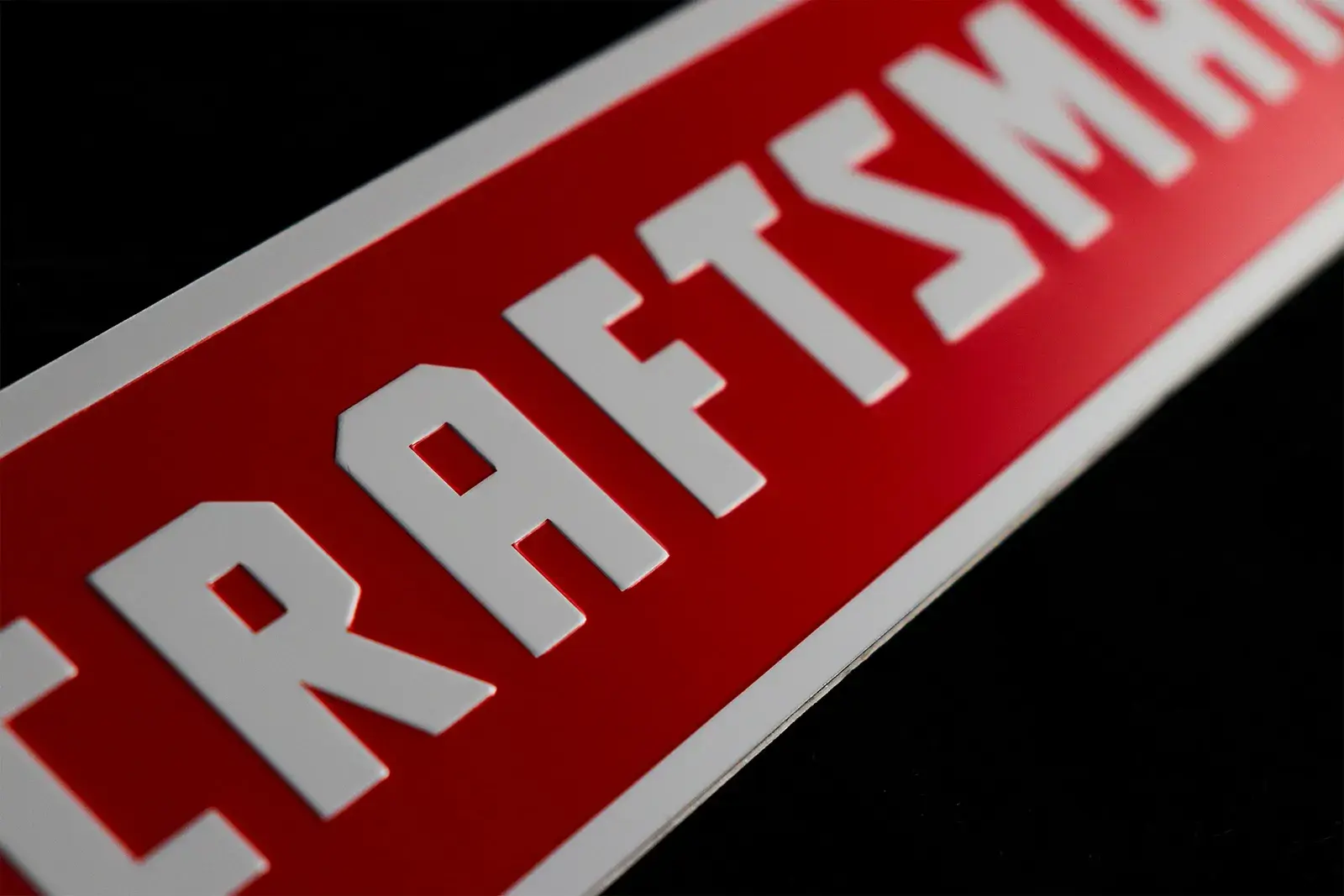In the world of product identification, durability is key. Whether it's an ID or data plate on industrial equipment or a nameplate on consumer goods, the longevity of your product identification plays a crucial role in maintaining brand integrity, ensuring regulatory compliance, and providing important information to users (plus, you paid for them so obviously you want them to last). We’ve compiled a list of 5 tips to help you maximize the lifespan of your product labels and nameplates to ensure they stand the test of time.
Choose the Right Material
The first, and arguably most important step in ensuring durability is selecting the appropriate material for your labels and nameplates. Factors such as environmental conditions, exposure to chemicals, the function of the badge, overlay, or nameplate, and the type of surface where the label will be mounted all play a big role.
Metal: For environments exposed to high temperatures, chemicals, oil or grease, or heavy wear, aluminum, brass, or stainless steel offer superior durability.-
- If you know your data plate or nameplate will be exposed to high heat, check out this blog: Nameplates that are HOT, HOT, HOT!
-
- If you’d like more information on substrate options, download our free eBook: Nameplate, ID Plate, Decal, and Label Substrate Guide
Consider the Environmental Factors
Environmental conditions play a significant role in the lifespan of your data plates, labels, and nameplates. Exposure to extreme temperatures, chemicals, vibration, heat, oil, and grease can degrade materials over time. It’s crucial when you’re creating your nameplate or data plate to mention these factors so our Customer Care team can help guide you in the right direction to ensure longevity and durability.
Here are some of the options we offer that boost the lifespan of your badges and ID plates:
Doming: A crystal-clear urethane layer that adds not only physical and tactile dimension, but also protection. Available for both metal and plastic, doming is chemical and weather-resistant, UV resistant, waterproof, and self-healing.
For more information on Doming, you can read this blog.
Embossed Graphics and Text: An easy to way to permanent texture to your nameplates and ID plates. Embossing is a popular addition not only because of its effect, it’s versatility. You can choose to emboss or deboss text, your logo, or a unique pattern in the background of your nameplate. There are some restrictions based on the substrate you choose, but our Customer Care team can help you determine what’s best for your project.
For more Information on embossing, click here.
If you’d like information on additional design elements for an embossed nameplate or label, read this blog post!
Use High Quality Adhesives
Along with the substrate you choose, the adhesive is just as important when you’re looking to create a long-lasting nameplate or data plate. A high-quality adhesive ensures that the label remains securely attached to the surface, even in challenging conditions.
Surface Compatibility: When talking with Customer Care as you’re creating your badge or label, make sure you mention the mounting surface. The type of surface can cause the adhesive to respond differently, for example: powder coated, porous materials, glass, and textures all require specific call outs. A combination of adhesive and rivets or screws can be used as well.
Opt for Protective Coatings
Protective coatings can significantly extend the life of your labels and nameplates by providing an additional barrier against environmental factors.
Laminate: If you’ve chosen a polyester or vinyl substrate, adding a clear overlaminate can help protect against scratches, moisture, and chemicals.
Hard Coating: If you’ve opted for a polycarbonate substrate, a clear hard coating can provide additional durability, especially for second surface decoration and printed graphics.
Durable Printing Processes
Regardless of the substrate material you choose, rest-assured that whatever printing process you choose, it will stand up in both indoor and outdoor conditions. Our Customer Care team will guide you in the right direction, so you won’t have to figure it out on your own!
Selecting digital printing offers full color imaging, variable data like barcodes, sequential numbers, and QR codes. If you choose to use standard screen printing, first and second surface printing for plastic, patterns, textures, barcodes, QR codes, backlit, and dead front graphics on plastic are available.
Need Anything Else?
Hopefully these 5 tips provide a little more insight into creating a durable and long-lasting nameplates or labels, able to stand up in the harshest conditions. If you have any questions or need any more information, you can reach out to us here. Our customer care team is ready to provide you with any information or support you might need!


